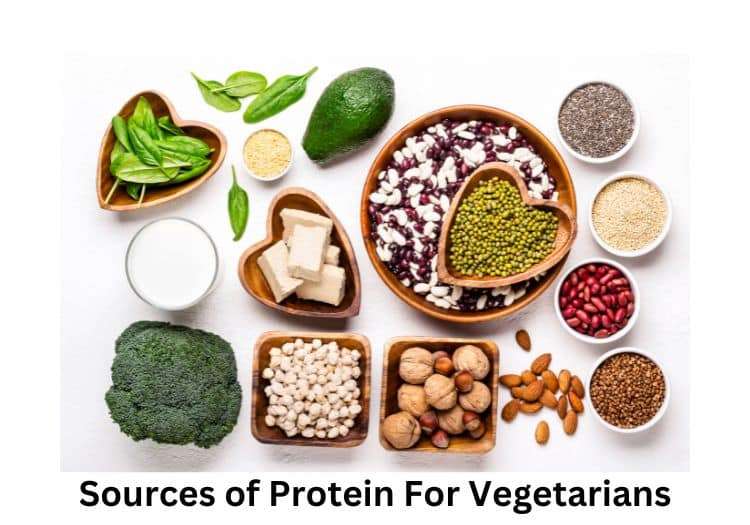Are you a vegetarian looking for plant-based sources of protein to keep your diet healthy and hearty? Do you want to get creative with the ways you get protein, but don’t know where to start?
Eating a balanced diet is essential for good health but For vegetarians, it can be challenging to get enough protein in their diet without eating meat or animal products.
So, if you want to boost your protein intake while sticking to a vegetarian diet, join us on this journey.
Fortunately, there are many plant-based sources of protein that can be included in a vegetarian diet.
Benefits of Eating More Protein
Proteins play a vital role in health and it has many benefits such as:-
1. Improves bone health.
2. Boosts metabolism.
3. Helps in weight loss.
4. Lowers Blood Pressure.
5. Does not harm healthy Kidneys.
6. Increases muscle mass and muscle strength.
Here are the top 6 picks that can help provide all the essential nutrients your body needs.
The Ultimate Guide to top 6 vegetarian Sources of Protein
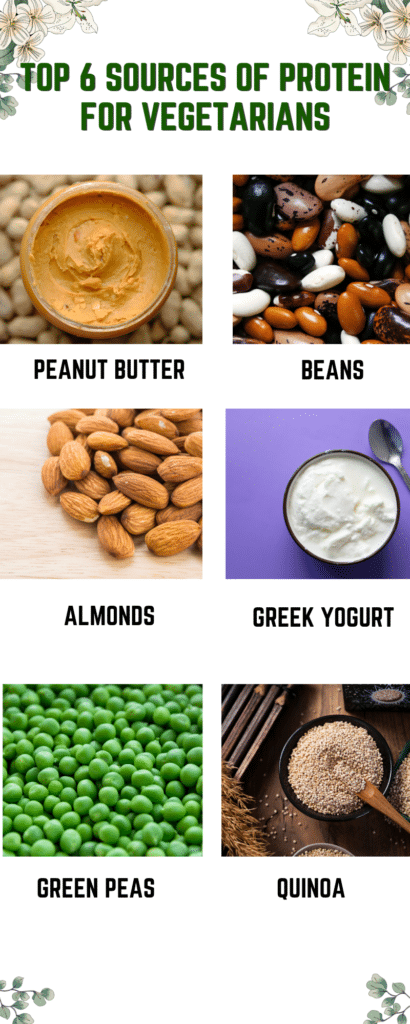
1. Peanut butter
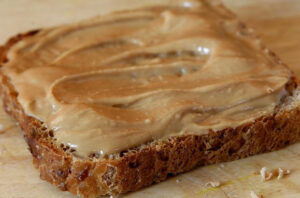
Peanut butter contains 7 g of protein per 2 tablespoons.
It is an incredibly versatile food that can be used both sweetly and savorly. It’s often used as a spread on toast and sandwiches, but it can also be transformed into a decadent dessert.
Peanut butter as well as peanuts are full of fiber, protein, and fat. It helps protect the heart and manage blood sugar and body weight. We can also make peanut butter at home and it is a very easy recipe. We can apply it on toast, blend into smoothies or make a peanut sauce for savory dishes. It makes a quick breakfast full of nutrients.
2. Beans
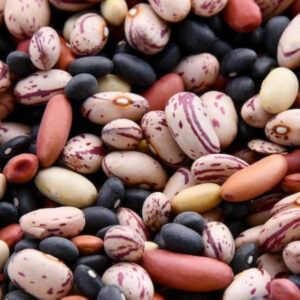
Since beans have been around for centuries, they have remained incredibly versatile and nutritious. Beans are considered as one of the rich sources of protein for vegetarians.
There are different types of beans and all are high in protein such as black beans, kidney beans, lima beans, lentils, soybeans, chickpeas, etc.
From chili and soups to salads and dips, you’ll soon find out why beans are a wonder food that’s here to stay. Packed with protein, fiber, and minerals, a half-cup of cooked beans can help meet over 20 percent of a person’s daily nutritional needs.
3. Almonds
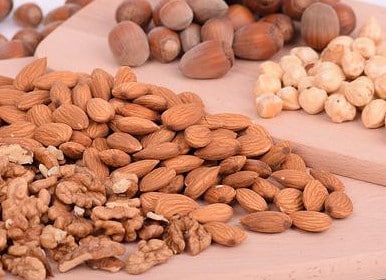
Almonds contain 6g of protein per ounce.
An almond is a healthy snack and an excellent addition to a variety of meals. A single serving of almonds contains 6 grams of protein, 4 grams of fiber, 13 grams of healthy fats, and has numerous vitamins and minerals. But, the benefits of this tree nut go beyond nourishment — it can also boost your wellness, both inside and out.
Almonds are nutrient-rich and packed with antioxidants including unsaturated fatty acids, phytosterols, magnesium, vitamin E, and copper. Almonds can help with indigestion problems. It improves heart health.
It is said that the best time to eat almonds is in the morning.
To receive the maximum benefits from almonds, it is recommended to consume them in the morning. Consuming nuts along with our breakfast helps in regulating blood sugar and boosts our metabolism.
4. Greek yogurt
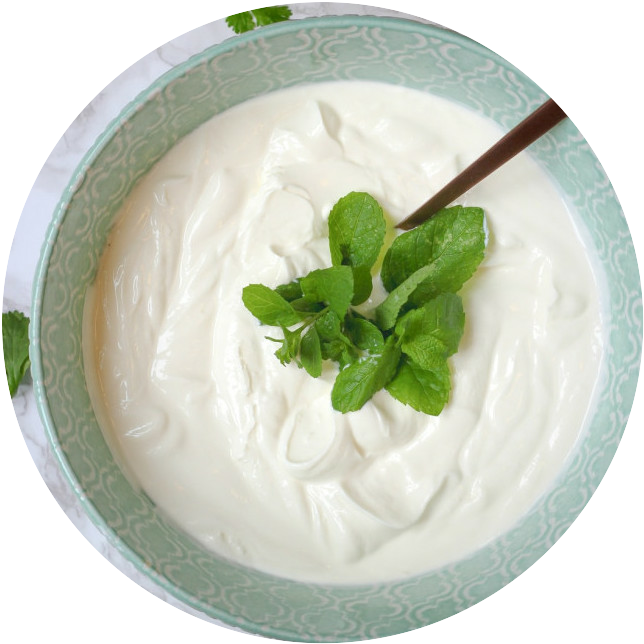
Greek yogurt contains 23 g of protein per cup.
Want a tasty treat you can feel good about? Creamy and delicious, Greek yogurt has nutritional benefits you must taste to believe. It’s no wonder the popularity of greek yogurt has grown over the past decade – it’s now a breakfast favorite among many households.
So grab a spoon, it’s time to get ready to discover the health and culinary benefits of greek yogurt today!
Yogurts are aslo high in calcium, vitamins, and probiotics, which can enhance gut health.
A bowl full of yogurt with some nuts/fruit cuts is itself a healthy breakfast and gives us lots of proteins.
5. Green peas
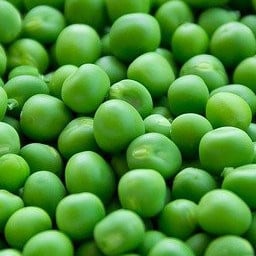
Green peas contain 8g of protein per cup.
Green peas are a nutritious, versatile and tasty food, but many of us overlook them.
Green peas are one of the most nutritious and protein-rich vegetables available. They contain high amounts of essential amino acids, which are the building blocks of proteins.
They are also a great source of dietary fiber, vitamins, minerals, and antioxidants. Additionally, green peas have a low glycemic index making them an ideal choice for those watching their blood sugar levels. Eating green peas can provide you with all the nutrients you need to stay healthy and energized throughout your day.
Green peas contain magnesium, potassium, and calcium and helps to prevent high blood pressure, which is a major risk factor for heart disease.
6. Quinoa

Quinoa contains 8g of protein per cup (cooked). It is a nutrient-dense grain and is one of the sources of protein that has been gaining popularity in recent years.
Quinoa is rich in fiber and helps in weight loss. The fiber in quinoa can also help with blood sugar levels, lowering your risk of diabetes and heart disease.
It contains all nine essential amino acids, making it a great option for vegetarians and vegans who are looking for alternative sources of protein.
Quinoa is also high in minerals and vitamins which makes it an excellent choice for those looking to maintain a healthy diet. With its versatility and nutritional value, quinoa is becoming the go-to source for many health-conscious individuals.
Quinoa is also Gluten-free. As a result, gluten-intolerant or celiac-sick individuals do not have to worry about quinoa allergies.
Summary/Key points:-
1. Proteins are important for overall health.
2. There are many sources of protein for a vegetarian but the main sources of protein are peanut butter, almonds, beans, Greek yogurt, green peas, and quinoa.
By incorporating these top six sources of protein into your vegetarian diet, you can ensure that your meals are always full of essential nutrition. It’s easy to find a variety of plant-based foods that are full of flavor and good for you. So don’t be afraid to get creative and start cooking with these sources of protein!
Have you increased your intake of protein in your daily diet? Comment below to let me know which source you prefer, and if there are any other sources of protein.
RELATED POSTS:-
